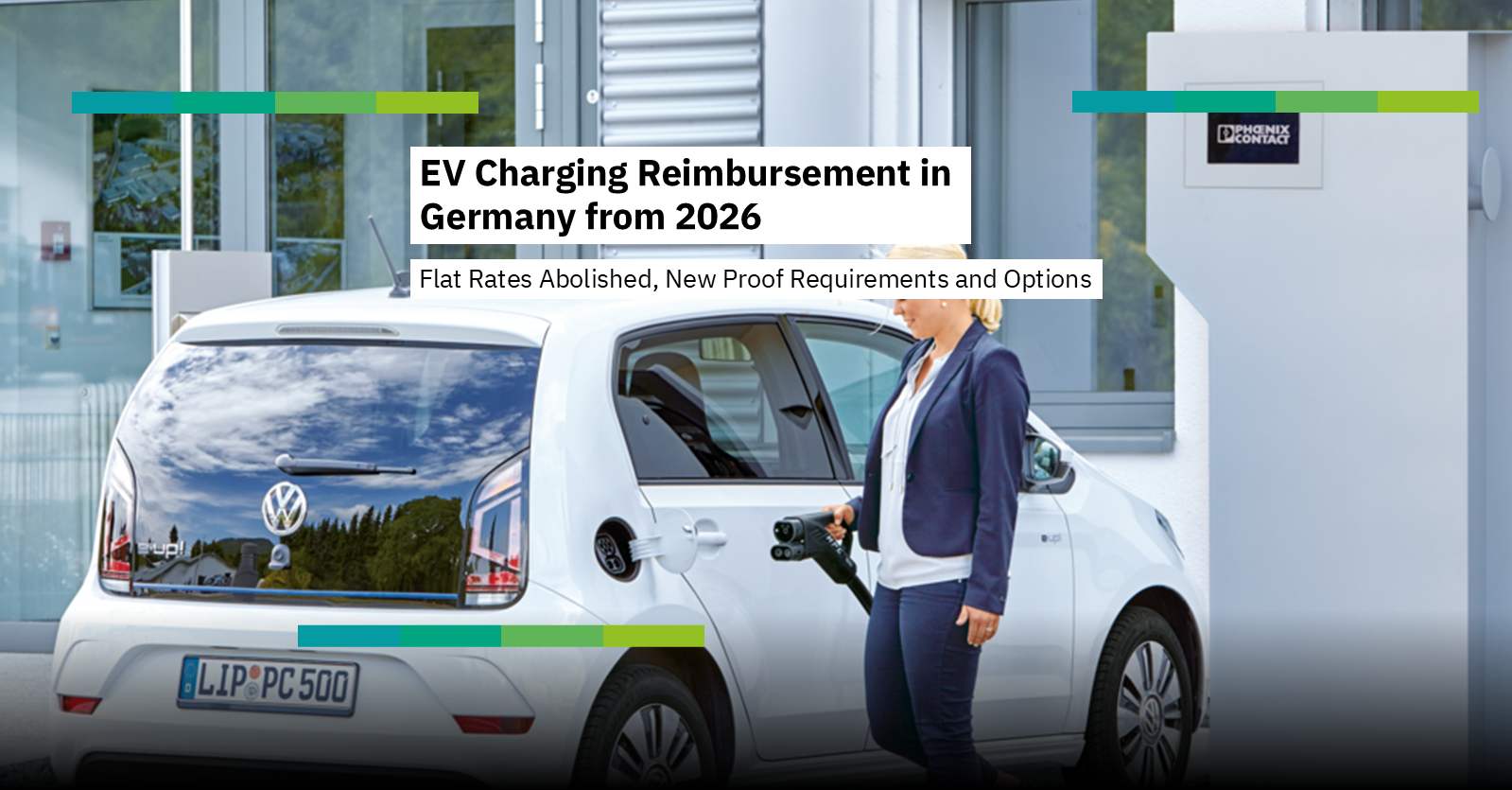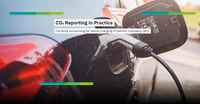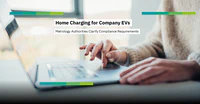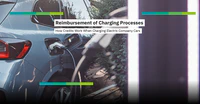The German Federal Ministry of Finance (BMF) issued new regulations on November 11, 2025 regarding the tax treatment of electricity costs for charging company cars. For businesses, this means: the well-known monthly flat rates will be abolished, and new options will take their place.
Note: This article is for informational purposes only and summarizes the changes based on the official BMF letter dated November 11, 2025. It does not constitute tax advice. For complete and binding details, please refer to the official document: View the official BMF letter (PDF)
Key Changes at a Glance
1. Flat Rates Abolished
The previous monthly flat rates (€30 / €70 for EVs, €15 / €35 for plug-in hybrids) will expire on December 31, 2025. From 2026 onwards, new rules apply for tax-free reimbursement of charging costs.
2. Reimbursement Options from 2026
Starting in 2026, companies can reimburse employees for home charging costs tax-free under certain conditions:
Option A: Actual Costs
Requirements:
Proof of charged electricity via a separate meter (stationary or mobile, e.g., wallbox or vehicle-integrated)
Proof of individual electricity tariff through the energy supplier contract (no self-declared values)
Dynamic tariffs and proportional base fees can be considered
Option B: Electricity Price Flat Rate
To simplify, the BMF allows the use of a flat rate for 2026–2030.
- Basis: Average household electricity price for the first half of the previous year (consumption class 5,000–15,000 kWh), published by the Federal Statistical Office (Destatis).
Example: For 2026, the average price is approx. €0.34/kWh. At 3,000 kWh, this equals a tax-free reimbursement of about €1,020.
Important: The chosen method applies for the entire calendar year. Switching between Option A and Option B is not permitted.
3. Proof Requirement
Tax-free reimbursement requires proof of the charged electricity amount.
Possible proof methods:
Stationary meter in the wallbox
Mobile meter
Vehicle-integrated meter with clear consumption display
For the flat rate (Option B), no proof of tariff is required, but the charged kWh must still be documented.
Guide to choosing a Wallbox: Your comprehensive Guide!
Our guide provides you with important insights into the details you should consider before purchasing a wallbox. Learn about the key criteria to make the right choice for your home and company car.
REQUEST GUIDE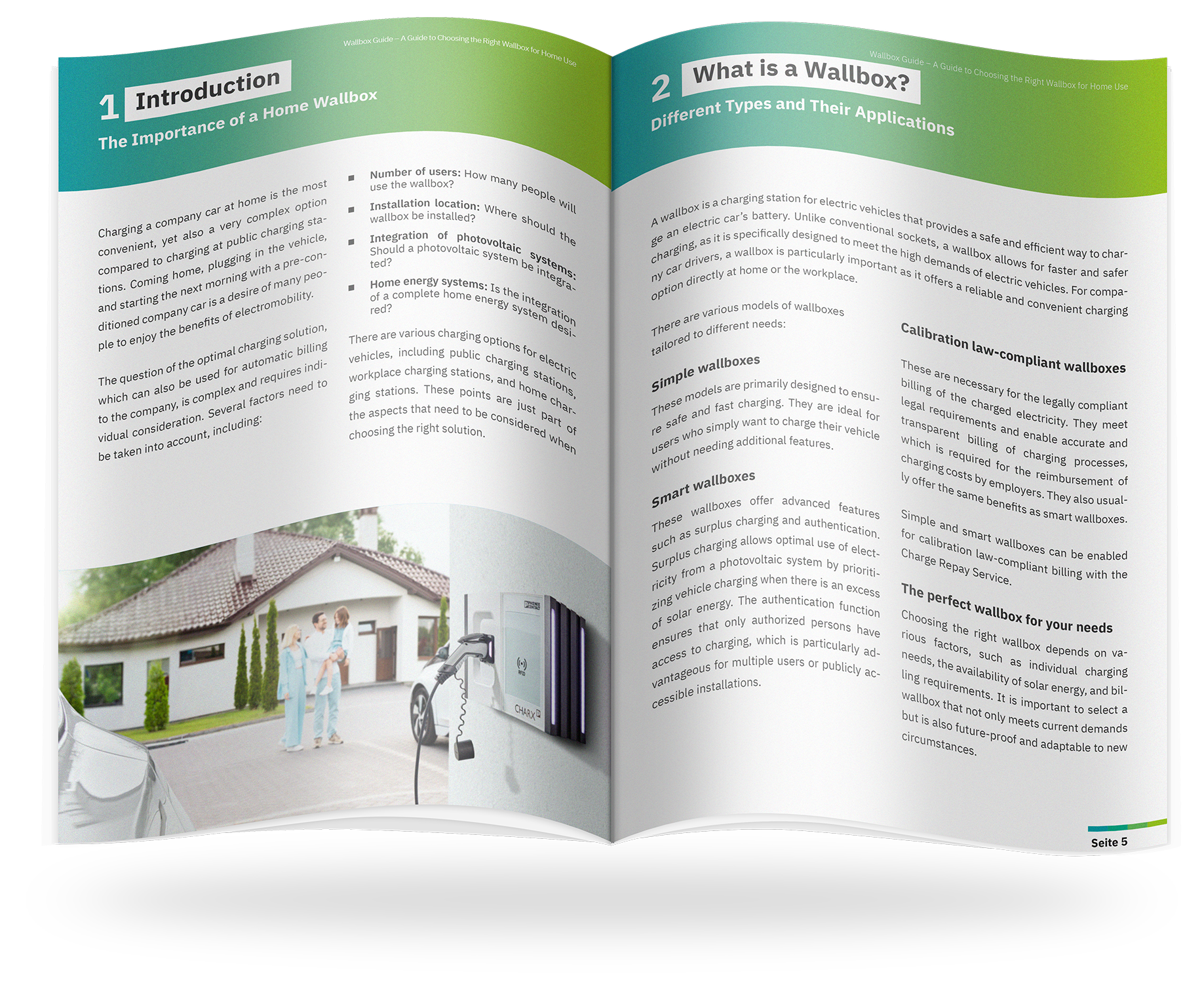
Note on Calibration Law:
New: Guidance from the Metrology Authorities on Home Charging (AGME 09 January 2026)
AGME has published new clarifications for reimbursing home charging in 2026. These include the important note that MID meters can be sufficient under certain conditions, but mobile MID meters integrated into charging cables are not permitted. More details can be found in the updated article: Home Charging for Company EVs: Metrology Authorities Clarify Compliance Requirements
4. Charging at Public Stations
If electricity is purchased from third-party providers (e.g., public charging stations), additional reimbursement is possible – but only with a receipt.
- BMF recommendation: Companies should establish clear processes for billing.
5. Using Electricity from Solar PV Systems
Self-generated electricity from PV systems is treated like household electricity.
Requirement: Proof of charged kWh via suitable metering devices (wallbox, mobile, or vehicle-integrated).
Reimbursement can be based on the documented purchase price or the flat rate.
6. Charging at the Company Remains Tax-Free
Free or discounted charging at the company continues to be tax-free (§ 3 No. 46 EStG).
7. Wallbox Regulations
Temporary provision of a wallbox remains tax-free (§ 3 No. 46 EStG).
Transfer of ownership or subsidies can still be taxed at a flat rate of 25% (§ 40 para. 2 No. 6 EStG).
Condition: The benefit must be provided in addition to regular salary (no salary conversion).
These rules have applied since January 1, 2017 and were extended until December 31, 2030 under the law promoting electromobility (§ 52 para. 4 sentence 21 and para. 37c EStG).
Recommendations for Companies and Drivers
Update car policies: Define reimbursement method and proof requirements clearly
Check technical requirements: Metering obligation – retrofitting may be necessary
Communicate changes: Inform employees about new rules and requirements
Implement digital processes: Use tools for recording and billing charged electricity
Easy Implementation with Phoenix Contact
With Phoenix Contact’s Charge Repay Service, you meet all proof requirements and make any wallbox compliant with German calibration law – regardless of manufacturer.
